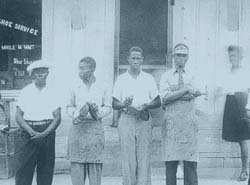Syracuse Views Summer 2025
We want to know how you experience Syracuse University. Take a photo and share it with us. We select photos from a variety of sources. Submit photos of your University experience by sending them directly to Syracuse University News at…

 Law professors Paula C. Johnson and Janis L. McDonald, co-directors of the CCJI, met with local and federal prosecutors and advocated for justice in this case on behalf of the family. The work of CCJI law students proved critical in this investigation by locating and identifying thousands of unredacted documents from 1967 related to the case. CCJI provided these vital documents to the Concordia Sentinel and to local and federal law enforcement agencies. “The CCJI is pleased that our research provided the critical foundation for Nelson, leading to the developments reported today,” says Johnson.
Law professors Paula C. Johnson and Janis L. McDonald, co-directors of the CCJI, met with local and federal prosecutors and advocated for justice in this case on behalf of the family. The work of CCJI law students proved critical in this investigation by locating and identifying thousands of unredacted documents from 1967 related to the case. CCJI provided these vital documents to the Concordia Sentinel and to local and federal law enforcement agencies. “The CCJI is pleased that our research provided the critical foundation for Nelson, leading to the developments reported today,” says Johnson.